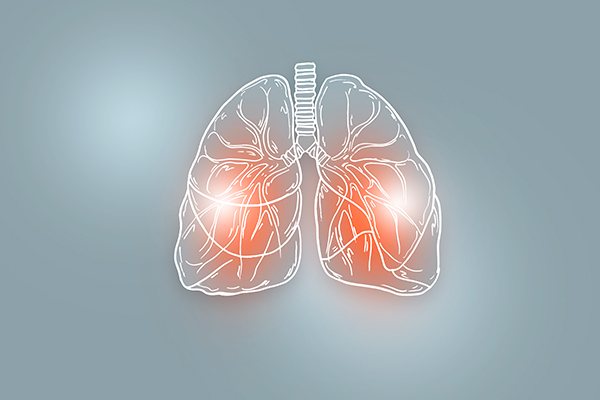Almost 40,000 adults and children in the U.S. are living with a disease that makes it tough to breathe, easy to pick up infections and hard to digest nutrients. It’s cystic fibrosis (CF).
What is cystic fibrosis?
CF is a complex genetic disease that hurts the organs. This includes the lungs and pancreas. Your body creates liquids like mucus and digestive juices. Due to a genetic change, these liquids become thick and sticky. They then clog airways causing breathing problems. They also block tubes in the digestive system. This means the body can't absorb nutrients properly.
When CF was first diagnosed in the late 1930s, patients often died in childhood. In recent decades, things have changed for the better. Early screening, diagnosis and treatment have extended patient's lives. This means they can live into their 30s, 40s and beyond.
Who does it affect?
Parents pass CF to their child through genetics. Both parents must carry an abnormal gene for the child to be at risk for the disease. About 1 in 30 Americans carries the CF gene. Screening of newborns is standard in the U.S. It helps to diagnose and treat the disease early. About 1,000 new cases of CF will be diagnosed in the U.S. each year. It’s more common in white babies as it is found in about 1 in 3,500. It is less common in Black, Hispanic, Asian, Native American and Alaskan Native babies.
How is cystic fibrosis treated?
There is no cure for CF, but research continues. People with CF have various therapies to help manage their disease. It all depends on symptoms and severity. A key part of managing the disease is proper nutrition.
How is cystic fibrosis treated?
CF impacts the body in specific ways. So, there is a special nutritional approach for people living with CF. There are four nutrition fundamentals everyone living with CF should know.
- Eating more calories
CF makes breathing and digestion more difficult. Because of this, the body uses more energy for these basic functions. But there are ways to make up for that extra energy use. And you can still maintain body weight and muscle mass. The Cystic Fibrosis Foundation® shares that people with CF usually need between 1.5-2 times the number of daily calories compared to those without CF. It recommends a high-calorie, healthy diet and encourages patients to get those extra calories from:- Increased lean proteins
- Healthy unsaturated fats including nuts, avocados and nut oils — with about 40 percent of daily calories coming from fat
- Full-fat dairy products to support bone health
- Taking vitamin supplements
CF interferes with the body’s ability to absorb vitamins in food. Eating a nutritious diet is crucial. But people with CF may also need to take a vitamin supplement designed for the way their bodies process nutrients. - Drinking more fluids
Staying well-hydrated helps all systems in the body work well. Fluids, especially water, also help thin mucus in the body. Fluids also help keep airways clearer and digestion moving. - Taking enzymes
CF affects the body’s ability to get nutrients from food. Because of this, most people with CF take an enzyme before they eat. Enzymes work in the small intestine. They help the body digest fat, protein and carbohydrates and absorb nutrients.
Mom's Meals® can help
Managing CF is a daily process that starts with good nutrition. The Mom’s Meals general wellness menu is a convenient and delicious option for anyone who wants to support a healthy diet and lifestyle.



